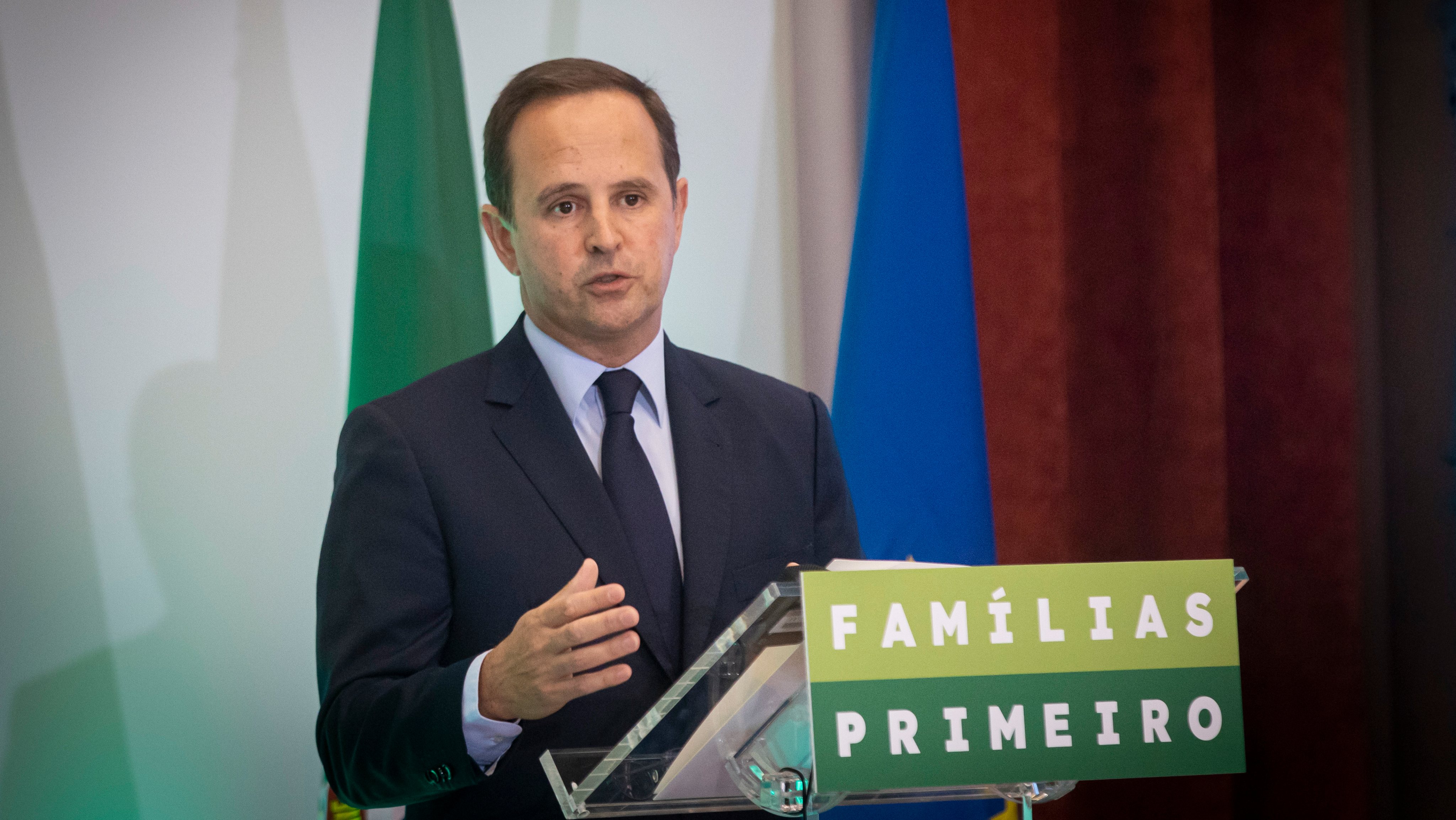The Government is still not willing to clearly assume a possible loss of purchasing power of pensioners in 2024, due to a lower-than-expected increase in pensions. This Thursday, in Brussels, the Minister of Finance, Fernando Medina, even accused “some oppositions” of wanting to spread “an error” to “Portuguese public opinion.”
“There is no cut in pensions,” the minister guaranteed, although in 2024, if the calculation formula that is applied is the one currently in force, there may be a smaller increase than there would have been if the 2023 update had been made, according to the law. . . “There is no such cut in 2022, where pensions were increased in accordance with the law – and where we are now giving an extraordinary half-pension amount, which pensioners will receive in October – and pensions will be increased in 2023.”
We have already presented figures for the 2023 increases. What we are saying is that during the year 2023 we had to adapt this figure. We must ensure that pensions are paid to current retirees, [mas] also to future pensioners. We have to act in defense of the sustainability of Social Security”, said Medina.
PS worried about curbing future pension increases
“With the PS there is no cut in pensions,” the Finance Minister insisted, promising an “increase” in pensions in 2024, the year in which the base of the calculation formula will be lower. How much? “The value will be seen throughout 2023.”
If the issue, which has already generated accusations from the opposition – which speaks of a “trick” – has caused confusion, Medina says that it is not his responsibility: “I am explaining the best I can and I know what our policy is in this regard.” pensions”.
Costa opens the door to a new brake on the automatic rise in pensions in the future
Taxation of energy benefits? Yes, but indirectly (and already underway)
Asked if the Government intends to tax the recent increase in profits of some companies, such as those in the energy sector, in the current context, as defended by the president of the PS, Cárlos César – who even spoke of “fabulous profits with the misfortune of others” – , the finance minister dodged the issue.
Qualifying these “fabulous profits”, thus described by César, as “unexpected resources”, Medina assured that the Government’s intention is that these extraordinary profits of the companies can benefit families and companies. But, he defended himself, the Government is already doing it.
It should be done as a matter of fairness, but it should not be done in such a way that we make a number appear in the news, without this later being effective for the collection of revenue and for the use of the revenue for the benefit of the people ” , said the minister.
While assuring that the Government is studying “several models” of taxation of these extraordinary benefits, Fernando Medina recalled that in the renewable energy sector, for example, the benefits were used for a “generalized drop in consumer prices” . And he alluded to the regulated gas tariff, which will lower the cost for consumers in Portugal: “How is this financed? It is precisely because of the reduction in profits that the companies could have if they basically sold the gas they bought at market prices. It is not the State that is going to finance this.”
This is an example of “results” -extraordinary benefits- channeled “to Portuguese families, without looking for paragons of ideological foliage but with a sense of justice and a great sense of efficiency”, defended the minister.
A “different” position to the one transmitted by the president of the PS “would be to say that there was nothing to do”, the minister tried to circumvent. “We have an obligation to use these resources [lucros] wherever they are, so that, with efficiency, realism and a sense of justice, without falling into a discourse that does not correspond to practice, we can transport these results to the pockets of consumers”. The big difference for the president of the PS will be in the minister’s perspective that this is already being done, that is, “in the case of electricity and now of gas with a natural rate.”
In short, the minister summed up (and insisted), the work has already been done: “The results [lucros] the exceptions that this circumstance could put on the side of these companies are already being transferred to the consumer”, thus fulfilling “the same objective as the solidarity contribution, or taxes on unexpected profits or whatever you want to call it”. As for the ability to capture these results for benefits for families and individuals, “we are even making some progress” in Portugal, Medina considers.
Note: article updated at 11:51 a.m. with statements by the minister on the taxation of extraordinary profits of energy companies
Source: Observadora
